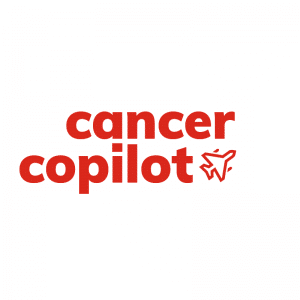Financial Help: Getting Required Medications and Treatments
Treating advanced prostate cancer can quickly become very expensive, especially for those of us without medical insurance, high co-pays, and little savings or income.
STEP 1
The first step is to talk to your doctor and ask if there are any programs they are aware of which can help you pay your bills. Ask if the physician can give you drug samples. Many doctors are constantly receiving free samples from the drug companies and will usually pass them on to you if you ask. Ask for a referral to the social work department at the hospital for information regarding organizations that provide financial aid for cancer patients.
Step 2
The next step is to Google the name of the drug to locate the pharmaceutical company’s web page. Most of the major pharmaceutical companies have patient assistance programs. Call the phone number listed for the company’s Patient Assistance Program and discuss your situation with their representative.
Pharmaceutical Patient Assistance numbers for the drugs used to treat advanced prostate cancer are:
Dendreon / Provenge 877-336-3736
AbbVie Patient Assistance Foundation 800-222-6885
Amgen / Xgeva 888-657-8371
ASTRAZENECA PHARMACEUTICALS, AZ&MeTM Prescription Savings Programs 800-AZandMe (292-6363)
Celgene Patient Support® 800-931-8691
Ferring Pharmaceuticals 888-347-3415
GENZYME Charitable Access Program (CAP) 800-745-4447 option 3
Novartis / Zometa 800-277-2254
Johnson & Johnson Patient Assistance 800-652-6227
Janssen / Zytiga 885-998-4421
Astellas / Xtandi 855-898-2634 or 800-477-6472
Novartis Oncology Patient Assistance 800-282-7630
Sanofi / Jevtana & Taxotere 888-847-4877
Bayer / Xofigo 855-696-3446
Try contacting these organizations to see if you qualify for assistance:
- The Partnerships for Prescription Assistance can greatly reduce the cost of certain prescription medications, including many that are typically used in the treatment of advanced prostate cancer. They can be reached at: 1-888-477-2669 or at pparx.org.
- The Cancer Financial Assistance Coalition (CFAC) is a group of national organizations that provide financial help to patients. CFAC educates patients and providers about existing resources through a searchable database of financial resources. To find out more, go to http://www.cancerfac.org/
- The Health Well Foundation is a 501(c)(3) non-profit organization established in 2003 that is committed to addressing the needs of individuals with insurance who cannot afford their co-payments, coinsurance, and premiums for important medical treatments. To find out more about the Health Well Foundation, go to: https://healthwellfoundation.org/
- Chronic Disease Fund (877-968-7233) helps underinsured patients with a chronic disease obtain medication.
- com is an information source about companies that offer patient assistance programs. These programs help those who cannot afford medications to obtain them at no or low cost through the manufacturer.
Local service or voluntary organizations such as Catholic Charities, Jewish Social Services, the Lions Club, Lutheran Social Services, the Salvation Army, as well as others may be able to offer financial assistance. Some of these organizations offer grants to help cover the cost of treatment and other expenses, while others provide assistance with specific services or products, such as travel or medications.
A social worker or the local telephone directory should provide a list of organizations. Many hospitals and clinics also maintain a list of service organizations in the community. You should also use Internet search engines to find compassionate care and drug assistance programs.
General assistance programs providing food, housing, and other services may also be available from the county or city Department of Social Services (check online or the local telephone directory for contact information).
For direct financial assistance, you may contact your city’s Department of Social Services.
Community-based groups, such as local churches, synagogues, mosques, and lodges may also provide assistance for people with cancer, sometimes even if the person is not a member of that particular organization or religion. Some hospitals also have private funds available for patients in need.
Sometimes getting treatments or special services will require travel. This means that you and your caregiver may end up being saddled with additional costs for transportation, lodging, and food. There are also programs that can help defray these additional costs. These include:
- Air Care Alliance (888-260-9707) offers a central listing of free transportation services provided by volunteer pilots and charitable aviation groups.
- Air Charity Network (877-621-7177) coordinates free air transportation for people in need.
- Angel Flight Samaritans (800-296-1217) provides long-distance travel for people with cancer and their families in need of travel assistance.
- The Corporate Angel Network (866-328-1313) arranges free air transportation for people with cancer traveling to treatment using empty seats on corporate jets.
- Joe’s House (877-563-7468) is a nonprofit organization providing a nationwide online service that helps cancer patients and their families find lodging near treatment centers: org
- The National Patient Travel Helpline (800-296-1217) provides information about charitable, long-distance medical air transportation and provides referrals to appropriate sources.
- The National Association of Hospital Hospitality Houses (800-542-9730) is an association of more than 150 nonprofit organizations that provide lodging and support services to families and their loved ones who are receiving medical treatment away from home.
If you served in the US military during the period of the Vietnam War and were in country or on a ship on the waters near Vietnam, the Veterans’ Administration will automatically cover your costs for prostate cancer treatment. Those men with advanced prostate cancer will probably also receive disability payments.

